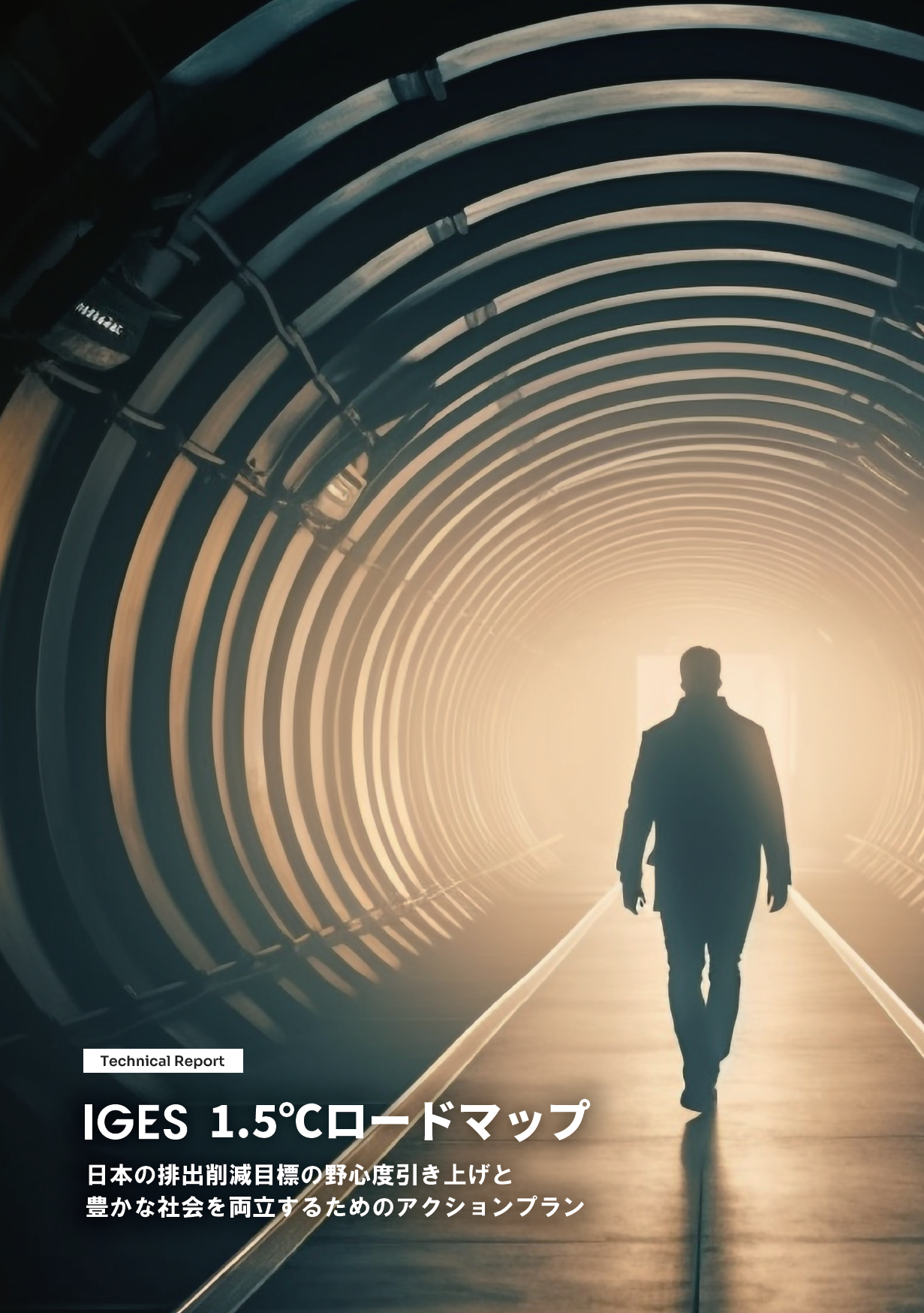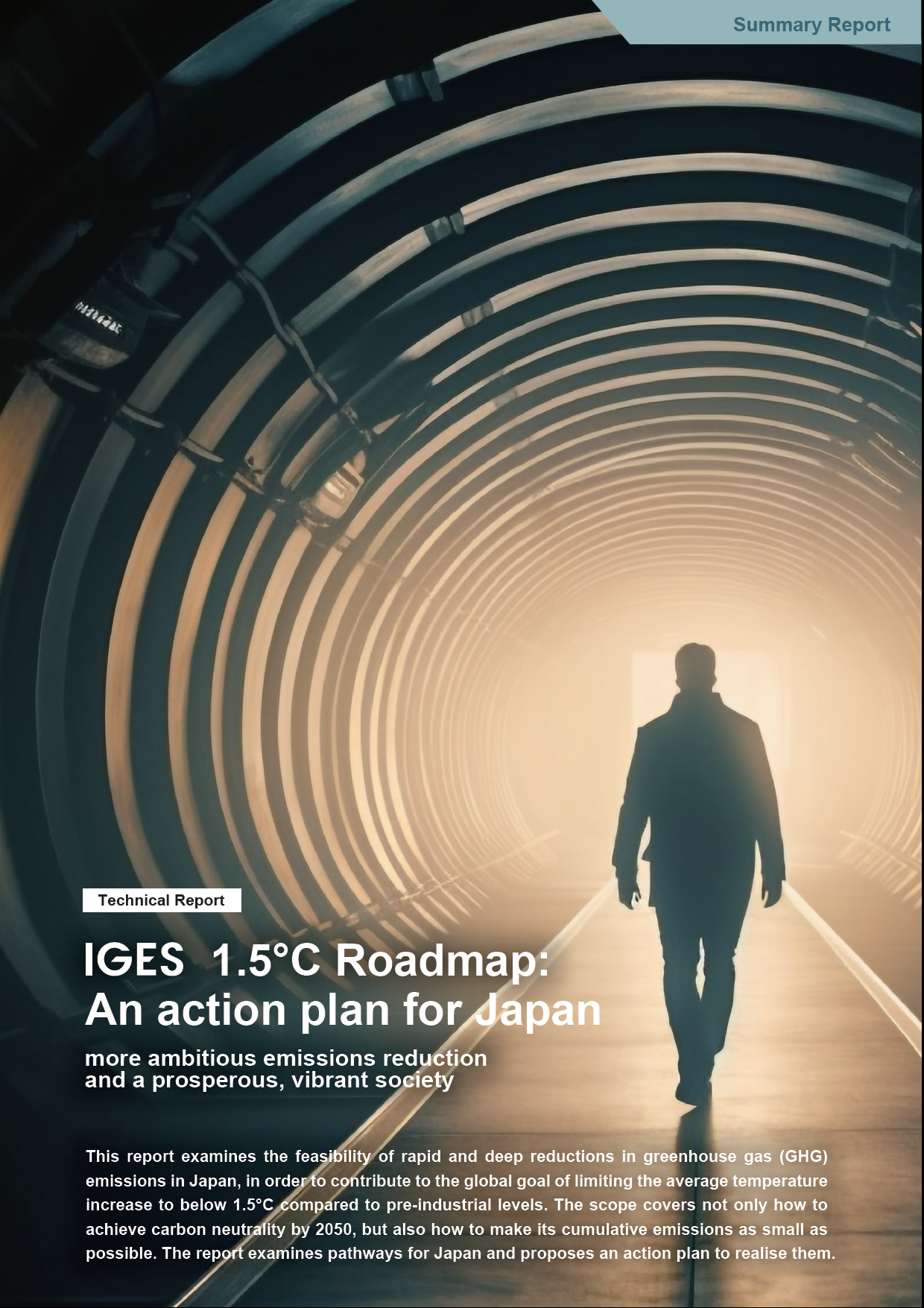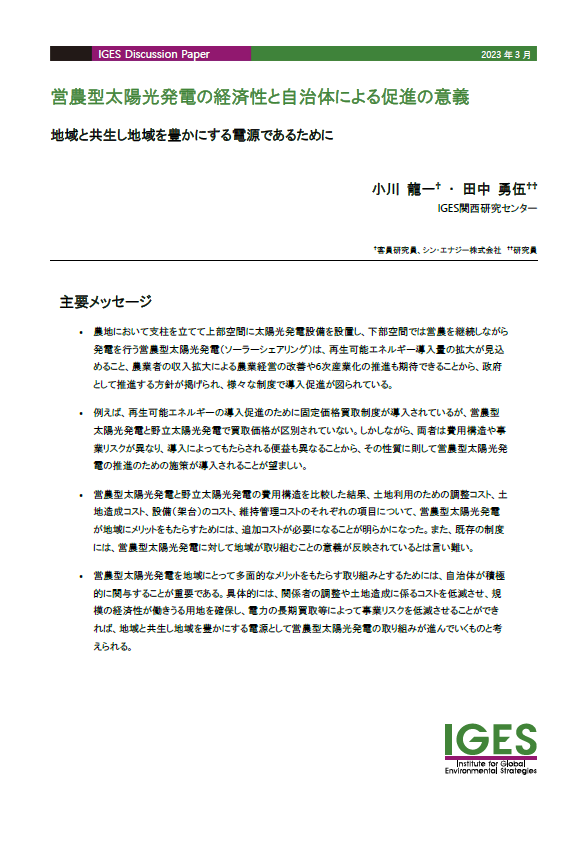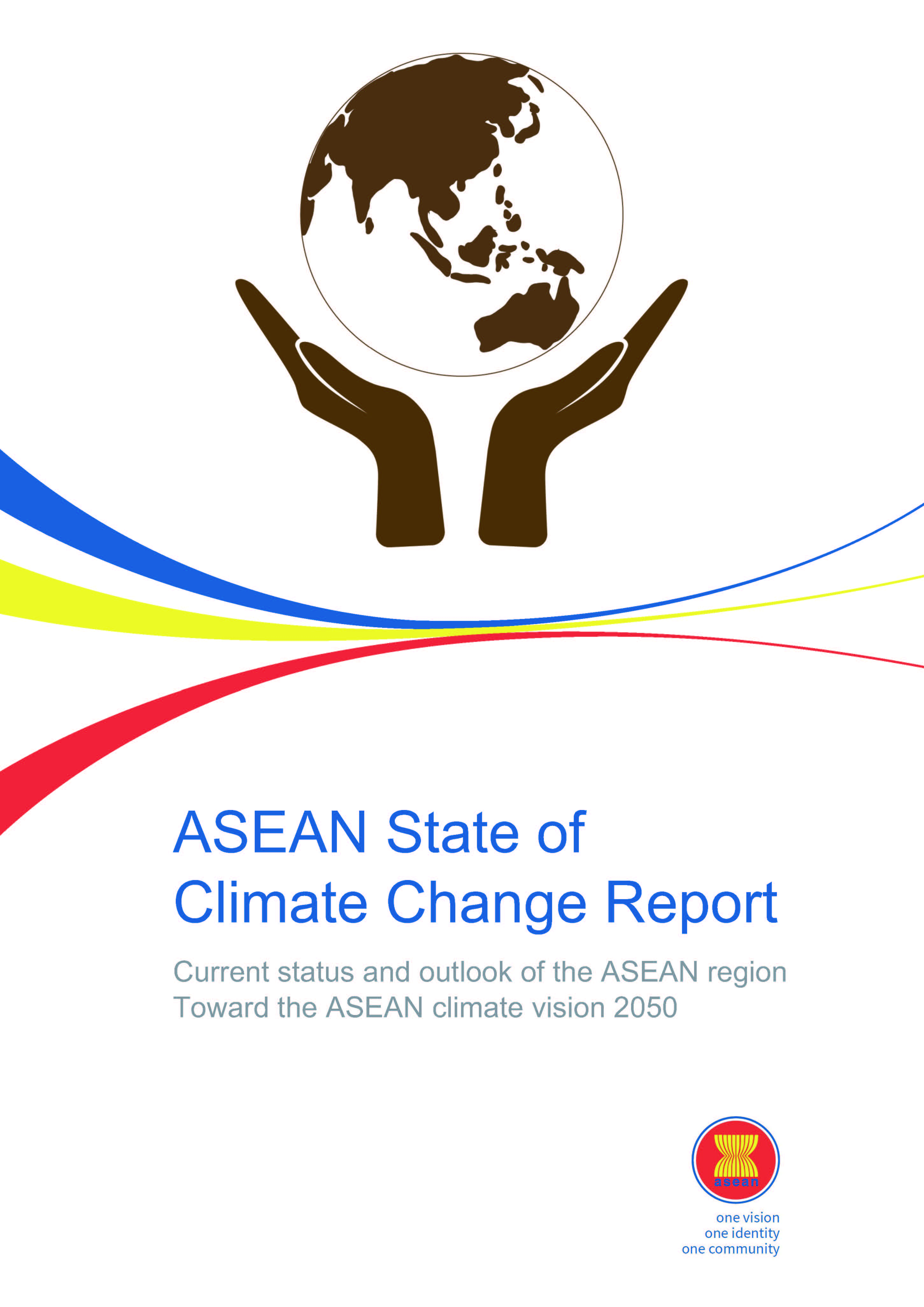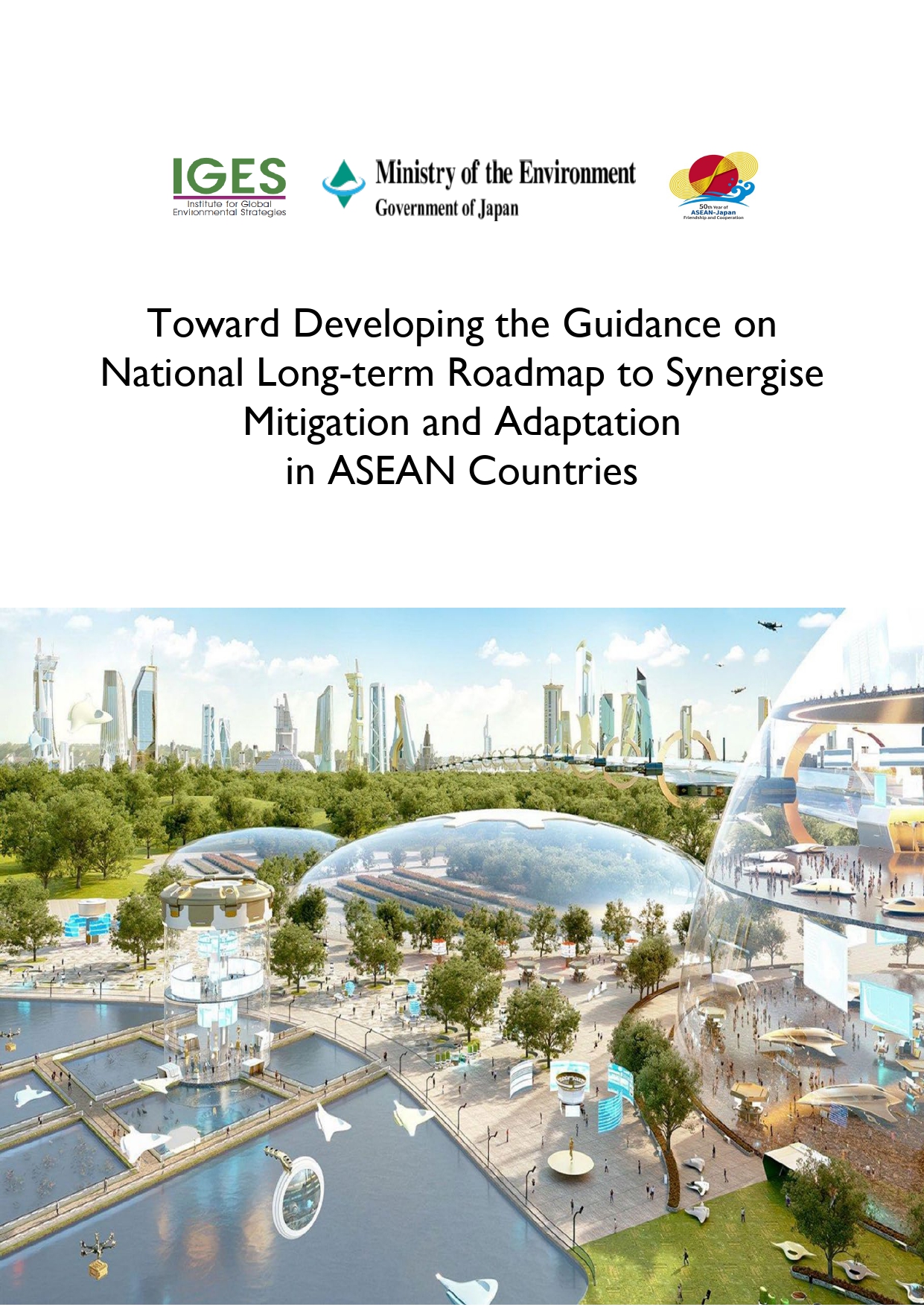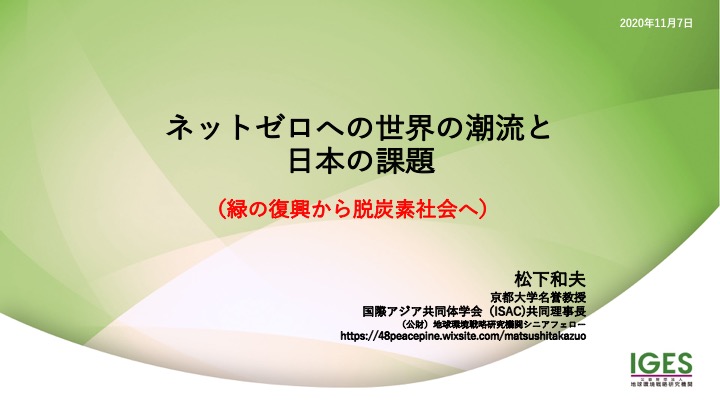本レポートは、世界平均気温の上昇を産業革命前と比べて1.5℃以内に抑えるという目標の達成に向けて、2050年までにカーボンニュートラルを実現するだけではなく、累積排出量をできる限り小さくする観点から、日本国内で早期に大幅な温室効果ガス(GHG)排出量削減を果たす可能性を検討し、その実現のためのアクションプランをまとめたものである。 2024年4月2日更新 謝辞の追記、出典の追記、誤記の修正を行いました。 企業の方向けに使いやすく再構成した「 1.5℃ロードマップ - 脱炭素でチャンスをつかむ。未来をつくる。 」もご活用ください。
- Clear all
- Research Unit: (-) Kansai Research Centre
- Research Unit: (-) Strategic Management Office
- SDGs: (-) Goal 7. Affordable and Clean Energy
- Topic: (-) Sustainable Technology
- Topic: (-) Sustainable Transitions
Results 1 - 10 of 28 (Sorted by date)
This report examines the feasibility of Japan not only achieving carbon neutrality by 2050, but also making significant reductions in greenhouse gas (GHG) emissions, so as to make its cumulative emissions as small as possible, thereby contributing to the global goal of limiting the average temperature increase to below 1.5°C compared to the pre...
農地において支柱を立てて上部空間に太陽光発電設備を設置し、下部空間では営農を継続しながら発電を行う営農型太陽光発電(ソーラーシェアリング)は、再生可能エネルギー導入量の拡大が見込めること、農業者の収入拡大による農業経営の改善や6次産業化の推進も期待できることから、政府として推進する方針が掲げられ、様々な制度で導入促進が図られている。 例えば、再生可能エネルギーの導入促進のために固定価格買取制度が導入されているが、営農型太陽光発電と野立太陽光発電で買取価格が区別されていない。しかしながら、両者は費用構造や事業リスクが異なり、導入によってもたらされる便益も異なることから、その性質に則して営農型太陽光発電の推進のための施策が導入されることが望ましい。...
ASEAN Centre for Energy Policy Brief
1. The ASEAN State of Climate Change Report (ASCCR) presented ASEAN’s mitigation goal: i) Achieve net-zero greenhouse gas (GHG) emissions as early as possible in the latter half of the 21st century; and ii) Cap peak GHG emissions as soon as possible after 2030 to ensure the net-zero GHG emission goal is met on schedule. 2. However, the updated...
The ASEAN State of Climate Change Report (ASCCR) provides an overall outlook of the state of play of climate change issues in the ASEAN region. ASCCR is also a forward-looking report, which includes recommendations on making the transition toward 2030 and on to 2050 for both adaptation and mitigation, considering ASEAN’s development context and the...
In Journal of Resources, Energy, and Development (JREAD)
This paper details the efforts made by Institute for Global Environmental Strategies (IGES) and The Energy and Resources Institute (TERI), under their Japan–India collaborative projects, to promote low carbon technologies (LCT) among small and medium enterprises (SMEs) in India. The empirical evidence gathered during the projects show that three...
2020年10月、菅首相の2050年温室効果ガス排出ゼロ宣言を受け、2050年脱炭素社会への移行に向けた号砲が鳴ったー どうやって実現するのか、または実現できるのか、などさまざま議論も湧き上がっているが、できるできないではなく、また宣言のあるなしに関わらず、これは立ち向かわざるを得ない人類生存の問題、自然の断りである。 本稿では、40年余りにわたり地球環境学の専門家として地球温暖化の科学、影響評価、政策研究に携わってきた筆者の経験と知見に基づき、今回の脱炭素社会転換をどう進めるかについての見解をまとめている。脱炭素社会転換に向け科学は何を要求しているのか、脱炭素社会を創るのに必要なこととは何かを解説する。 なお、本稿は2021年1月、...
10月26日に行われた、菅内閣総理大臣の所信表明演説で「2050年脱炭素社会の実現」を目指すとした方針についての、IGESコメントです。 脱炭素化の方向性と時間軸を明確に示すことは、企業や投資家の長期的視点に立った経営・投資判断を支えることにつながります。また、2050年脱炭素化は、パリ協定が目指す1.5℃目標にも整合する非常に野心的な目標で、総理大臣自らが2050年脱炭素化社会の実現を宣言したことをIGESは大いに歓迎します。 一方で、新型コロナウイルスによって減速した日本経済の立て直しに向けた経済復興策は、欧州における「欧州グリーンディール」のような、経済刺激策を気候変動やその他の環境課題への対策と結び付ける対策が乏しく、令和3年度予算編成におけるグリーンディールの作り込みが急務です。...
Since the 26th Conference of Parties (COP26) of the United Nations Framework Convention on Climate Change (UNFCCC) in 2021, global society, including Asian countries, has entered the phase of how to implement a long-term transition roadmap to net-zero greenhouse gas emissions (GHGs). Given vital needs for the development in many Asian countries, a...
国際アジア共同体学会(ISAC)
2020年11月7日に国際アジア共同体学会(ISAC)が開催されました。本会合で発表された「ネットゼロへの世界の潮流と日本の課題:緑の復興から脱炭素社会へ」の発表資料です。

